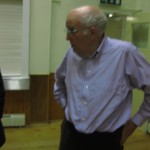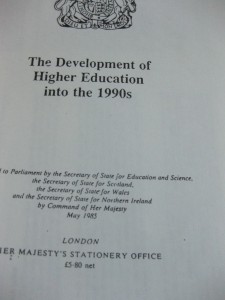Hats off to Drake
Tuesday, October 11th, 2011 On 10th October, 2011 Michael Drake, the OU’s first Dean of Social Sciences, gave a talk in the Milton Keynes Village Hall to the Two Villages Archive Trust about on ‘The OU and me’. He employed the metaphor of industrialisation to describe the impact of the OU. This echoed a phrase that he had employed in 1972 when Michael Drake argued that the Open University was ‘the industrial revolution of higher education’ (M Drake, ‘The Open University concept’, Studies. An Irish Quarterly Review, Summer 1972, LXI no 242, p. 158). (more…)
On 10th October, 2011 Michael Drake, the OU’s first Dean of Social Sciences, gave a talk in the Milton Keynes Village Hall to the Two Villages Archive Trust about on ‘The OU and me’. He employed the metaphor of industrialisation to describe the impact of the OU. This echoed a phrase that he had employed in 1972 when Michael Drake argued that the Open University was ‘the industrial revolution of higher education’ (M Drake, ‘The Open University concept’, Studies. An Irish Quarterly Review, Summer 1972, LXI no 242, p. 158). (more…)





